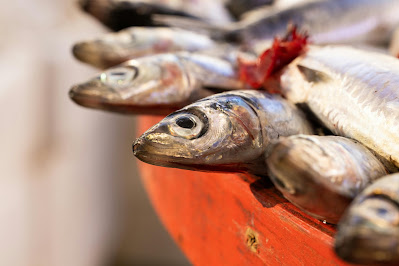As an amazon associate, I earn from qualifying purchases.
Introduction
Have you ever found yourself obsessively craving a particular food, even when you're not physically hungry? From salty snacks to sugary treats, food cravings can strike at any time, often sabotaging our best efforts to maintain a healthy diet. While these cravings may seem like an unavoidable temptation, understanding the science behind them can empower you to manage them effectively.
The Neuroscience of Food Cravings
Food cravings are more than just a passing whim; they're rooted in complex neurological processes involving various brain regions and neurotransmitters. According to research, cravings are closely linked to the brain's reward system, which is responsible for regulating pleasure, motivation, and reinforcement (Source: [The National Institutes of Health](https://www.ncbi.nlm.nih.gov/pmc/articles/PMC5958580/)).
When we consume highly palatable foods, such as those high in sugar, salt, or fat, the brain releases dopamine, a neurotransmitter associated with pleasure and reward. This dopamine release reinforces the desire for those specific foods, creating a powerful craving that can be challenging to resist.
Factors Influencing Food Cravings
While the neurological mechanisms behind cravings are universal, several factors can influence their intensity and frequency, including:
1. Hormonal Fluctuations:
Hormonal changes, particularly during menstrual cycles, pregnancy, and menopause, can trigger specific food cravings (Source: [Harvard Health Publishing](https://www.health.harvard.edu/blog/what-causes-food-cravings-and-how-to-beat-them-2019032616229)).
2. Emotional States:
Emotional factors like stress, anxiety, and depression can lead to emotional eating and cravings for comfort foods (Source: [American Psychological Association](https://www.apa.org/topics/emotional-eating)).
3. Sleep Deprivation:
Lack of sleep can disrupt the hormones that regulate appetite and satiety, leading to increased cravings for high-calorie, energy-dense foods (Source: [Sleep Foundation](https://www.sleepfoundation.org/sleep-topics/sleep-and-food-cravings)).
4. Nutrient Deficiencies:
Cravings can sometimes be the body's way of signaling a need for specific nutrients, such as protein, carbohydrates, or certain vitamins and minerals (Source: [Nutrition Reviews](https://academic.oup.com/nutritionreviews/article/78/1/32/5497134)).
Strategies for Managing Food Cravings
While food cravings are a natural phenomenon, they don't have to derail your healthy eating habits. Here are some science-backed strategies to help you manage cravings effectively:
1. Practice Mindful Eating:
Mindful eating involves being present and aware of your physical hunger cues, emotions, and sensory experiences during mealtimes. This practice can help you differentiate between true hunger and emotional cravings (Source: [Harvard Health Publishing](https://www.health.harvard.edu/staying-healthy/mindful-eating)).
2. Stay Hydrated:
Dehydration can sometimes be mistaken for hunger or cravings. Drinking water or herbal teas can help curb cravings and prevent overeating (Source: [Frontiers in Nutrition](https://www.frontiersin.org/articles/10.3389/fnut.2021.674497/full)).
3. Incorporate Protein and Fiber:
Consuming protein and fiber-rich foods can help promote feelings of fullness and satiety, reducing the intensity of cravings (Source: [The American Journal of Clinical Nutrition](https://academic.oup.com/ajcn/article/103/3/708/4564598)).
4. Practice Stress Management:
Stress can be a major trigger for emotional eating and cravings. Incorporating stress-relieving activities like exercise, meditation, or deep breathing exercises can help manage cravings (Source: [The American Psychological Association](https://www.apa.org/topics/stress-coping/index)).
5. Get Enough Sleep:
Prioritizing adequate sleep can help regulate the hormones responsible for appetite and cravings, making it easier to make healthier food choices (Source: [Sleep Foundation](https://www.sleepfoundation.org/sleep-topics/sleep-and-food-cravings)).
Well... wrapping up!
Food cravings are a complex interplay of neuroscience, hormones, emotions, and environmental factors. By understanding the science behind these cravings, you can develop practical strategies to manage them and maintain a balanced, healthy lifestyle. Remember, cravings are normal and not inherently good or bad; it's how you respond to them that matters most. Embrace mindfulness, self-care, and moderation, and you'll be well on your way to conquering even the most persistent food cravings.








No comments:
Post a Comment